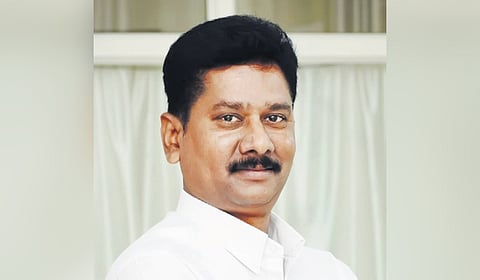

India is the world’s second largest producer of tobacco, with an annual production of around 800 million kgs. According to the studies conducted by the Central Tobacco Research Institute (CTRI), Flue Cured Virginia (FCV) tobacco is more remunerative than other crops grown in the country. FCV tobacco is cultivated in 97,127 hectares in the State this season by 43,125 farmers and produced 205.50 million kg of produce. In an interview with Bandhavi Annam, Tobacco Board chairman Yashwanth Kumar Chidipothu explained that crop insurance to tobacco farmers will benefit them and attain a balance between regulatory control and international demand and revealed the strategies for supporting tobacco farmers and boosting the exports of Indian tobacco.
What is the Tobacco Board’s strategy regarding crop size, and how are you managing the balance between regulatory control and international demand?
Though there are several varieties of tobacco, the Tobacco Board regulates only the cultivation and sales of FCV tobacco produced in Andhra Pradesh and a few districts in Karnataka. After weighing the suggestions of experts from Tobacco institute of India, farmer unions, and demand in the international market, we decide on the crop size every year, while keeping the competition from Brazil and African countries in view. For the 2024-25 crop year, the total crop size is 167 million kg. As the production is under 170 million kg, as per the instructions of GOI, our farmers have been instructed not to cultivate excess tobacco to prevent from paying additional penalties.
How do national weather disasters impact tobacco crops, and what is your comprehensive strategy for supporting tobacco farmers, such as crop insurance?
Excessive rains, and floods have an adverse impact on the growth and quality of FCV tobacco, an arid crop in the area. Approximately 83,000 small farmers are growing FCV tobacco under the Tobacco Board in both States. The absence of insurance support for FCV tobacco farmers was a major issue. Unlike other crops, FCV tobacco was not covered under the Pradhan Mantri Fasal Bima Yojana (PMFBY) or the Restructured Weather-Based Crop Insurance Scheme. Integrating FCV tobacco farmers into insurance schemes would provide comprehensive risk management and ease their financial hardship. I, along with MP Daggubati Purandeswari, submitted a representation to Shivraj Singh Chouhan, the Union Minister of Agriculture and Farmers Welfare on August 9, and he also responded positively.
What are your plans for mechanisation in light of rising labour costs?
The mechanisation of tobacco cultivation is very complicated in comparison with other crops. However, we are striving hard to integrate the latest technology in the processing of tobacco leaves. A tying machine for air-curing leaves has been introduced but not commercialised. In addition to this, trials are underway to replace fuel with electricity and solar power in tobacco barrens. The introduction of the electronic auction process has been a major relief to the farmers.
What is your strategy for boosting the export of Indian tobacco, and are there any specific targets set by the Government of India?
The Tobacco Board does not have any set targets, but the exports have increased tremendously. We generated Rs 9,740 crores of exports in 2023, Rs 12,005 crores in 2024, and domestic revenue of over Rs 78,000 crores in 2024. Our farmers earned a name for themselves in the international market for their resilience in sustaining their crops, especially during COVID-19 pandemic, when the production reduced tremendously in other countries. India earned good faith with the companies and that resulted in increased exports in the following years.
On the other hand, the export department of the Tobacco Board has been working aggressively and in coordination with the Department of Commerce to encourage more foreign companies to purchase our produce and reduce export charges.
What are the new initiatives undertaken by the Tobacco Board to double the farmer’s income?
We already doubled the income of tobacco farmers. In 2022, the average price of tobacco is Rs 179, Rs 223 in 2023, and Rs 286.5 in August 2024. This price is likely to increase to Rs 300 in the next few months, courtesy of the Indian reputation in the international market.
Does the Tobacco Board have a dedicated vigilance department to combat illicit trade in India? How are you addressing this issue?
The Tobacco Board closely monitors the excessive cultivation and the illegal sales of tobacco by middlemen. However, the illegal production, sales of cigarettes and other tobacco products do not come under the jurisdiction of the Board. The fact that India is the fourth largest illegal cigarette market in the world with illicit trade causing an annual revenue loss of Rs 21,000 crore to the government must be noted. Therefore, the Tobacco Board, in coordination with Customs, Excise, and Income Tax departments, would like to take the initiative in curbing illegal trade.